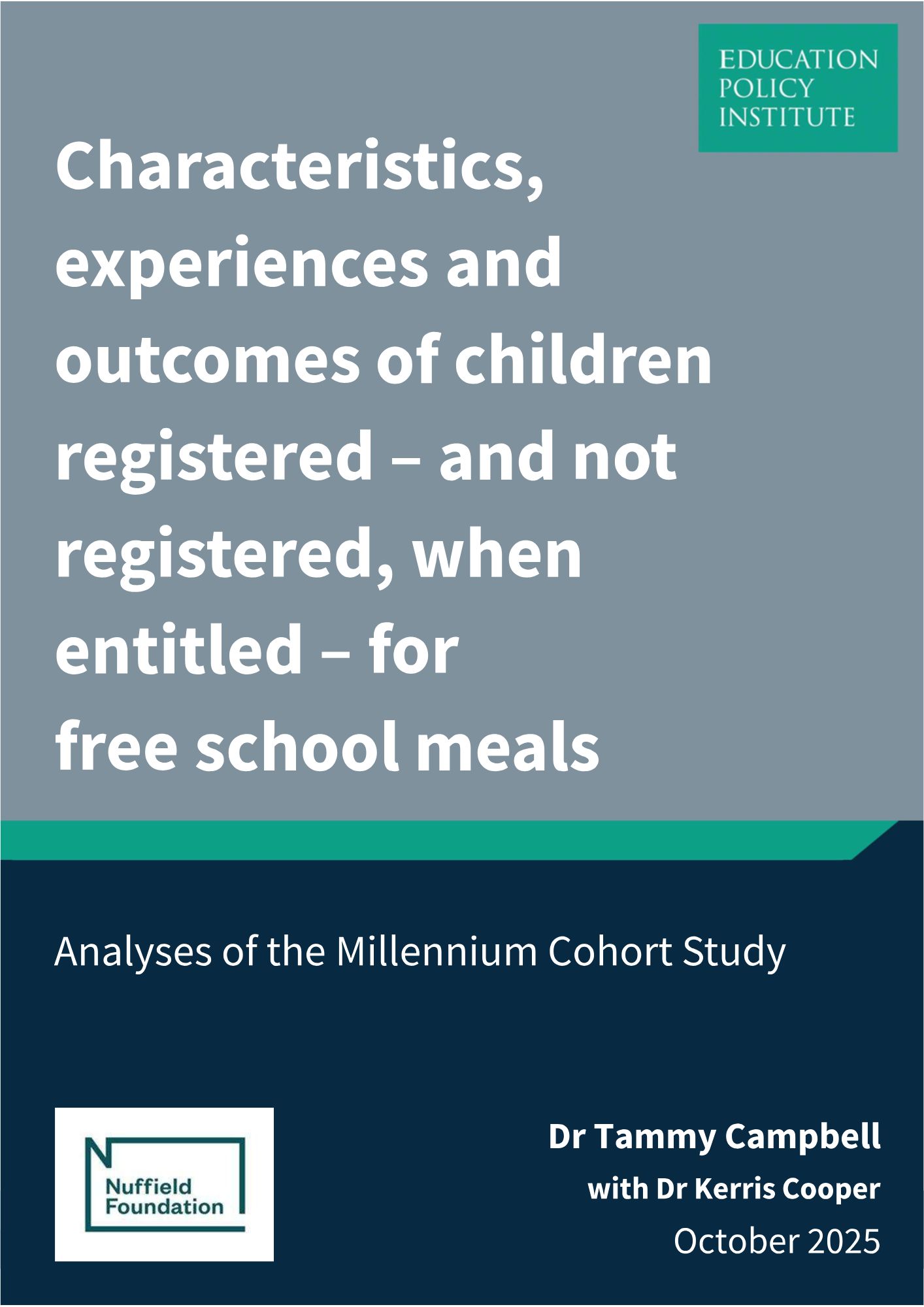“Characteristics, experiences and outcomes of children registered – and not registered, when entitled – for free school meals” is an output of a wider project funded by the Nuffield Foundation: “What has FSM measured and what are the implications?”
It is published alongside the project’s main public report, “Registration for Free School Meals (FSM): issues and implications for research, policymaking, practice and access”. This research investigates two main questions:
- What can be learned about the characteristics of children who meet eligibility criteria but are not registered for FSM?
- How does FSM registration and identification relate to children’s experiences and outcomes within the school system?
The analysis utilises newly available linked data from the Millennium Cohort Study (MCS), which tracked a large national sample of children from the turn of the century into adulthood. The MCS data includes detailed welfare benefits and income information across school years (ages five, seven, 11, and 14), which is linked with yearly FSM registration data from the National Pupil Database (NPD) and the Households Below Average Income dataset.
The findings build on previous literature and add crucial evidence on the characteristics of entitled but unregistered children, aiding both policymaking and research. Furthermore, this work adds depth to the understanding of FSM-registered children’s educational journeys, helping to unpick and understand the multifaceted reasons for the lower attainment trajectories observed among this group.
You can download and read the full report here:


